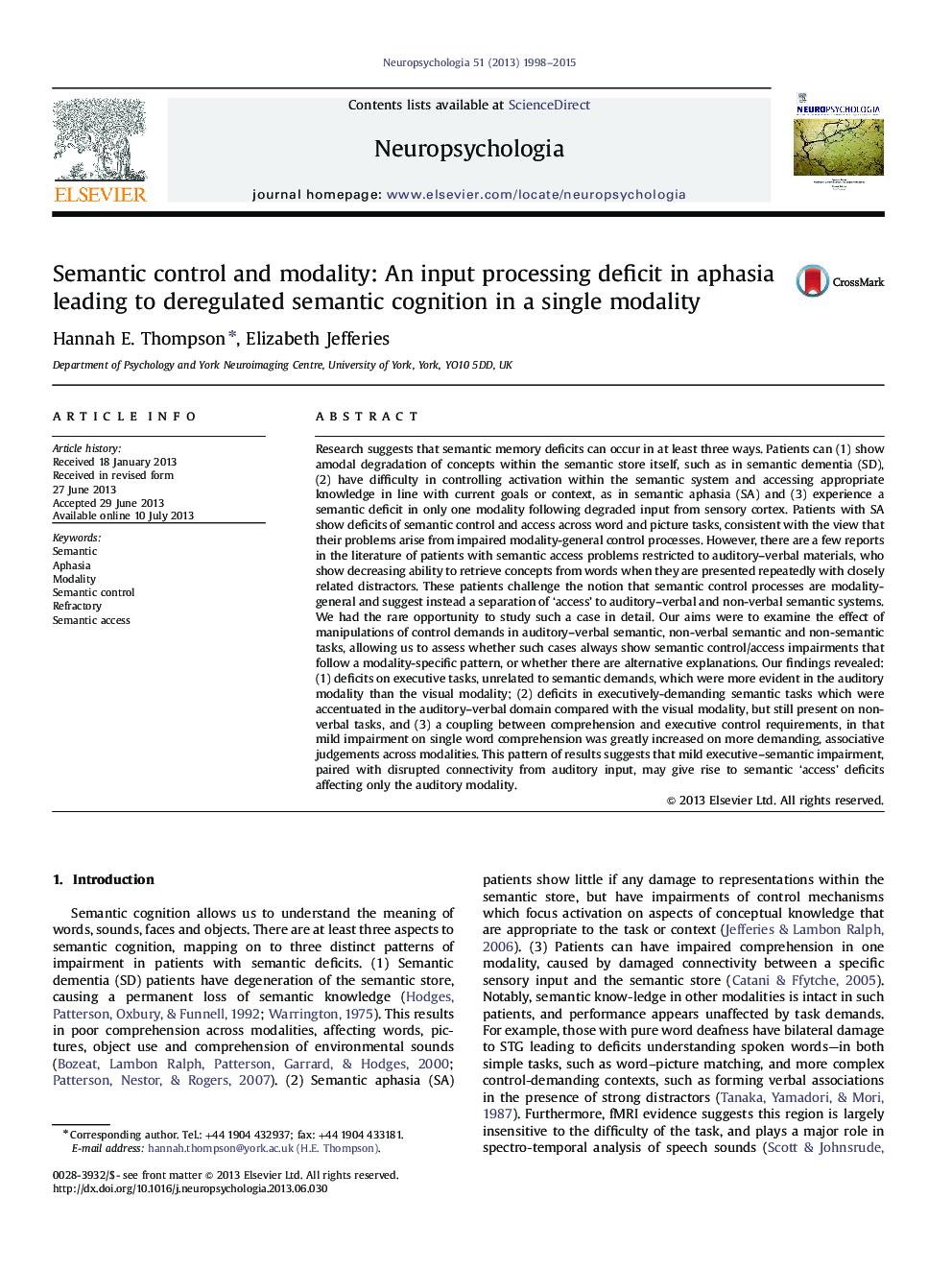| Article ID | Journal | Published Year | Pages | File Type |
|---|---|---|---|---|
| 10464794 | Neuropsychologia | 2015 | 18 Pages |
Abstract
Research suggests that semantic memory deficits can occur in at least three ways. Patients can (1) show amodal degradation of concepts within the semantic store itself, such as in semantic dementia (SD), (2) have difficulty in controlling activation within the semantic system and accessing appropriate knowledge in line with current goals or context, as in semantic aphasia (SA) and (3) experience a semantic deficit in only one modality following degraded input from sensory cortex. Patients with SA show deficits of semantic control and access across word and picture tasks, consistent with the view that their problems arise from impaired modality-general control processes. However, there are a few reports in the literature of patients with semantic access problems restricted to auditory-verbal materials, who show decreasing ability to retrieve concepts from words when they are presented repeatedly with closely related distractors. These patients challenge the notion that semantic control processes are modality-general and suggest instead a separation of 'access' to auditory-verbal and non-verbal semantic systems. We had the rare opportunity to study such a case in detail. Our aims were to examine the effect of manipulations of control demands in auditory-verbal semantic, non-verbal semantic and non-semantic tasks, allowing us to assess whether such cases always show semantic control/access impairments that follow a modality-specific pattern, or whether there are alternative explanations. Our findings revealed: (1) deficits on executive tasks, unrelated to semantic demands, which were more evident in the auditory modality than the visual modality; (2) deficits in executively-demanding semantic tasks which were accentuated in the auditory-verbal domain compared with the visual modality, but still present on non-verbal tasks, and (3) a coupling between comprehension and executive control requirements, in that mild impairment on single word comprehension was greatly increased on more demanding, associative judgements across modalities. This pattern of results suggests that mild executive-semantic impairment, paired with disrupted connectivity from auditory input, may give rise to semantic 'access' deficits affecting only the auditory modality.
Related Topics
Life Sciences
Neuroscience
Behavioral Neuroscience
Authors
Hannah E. Thompson, Elizabeth Jefferies,
